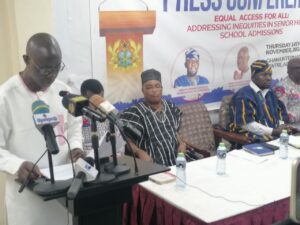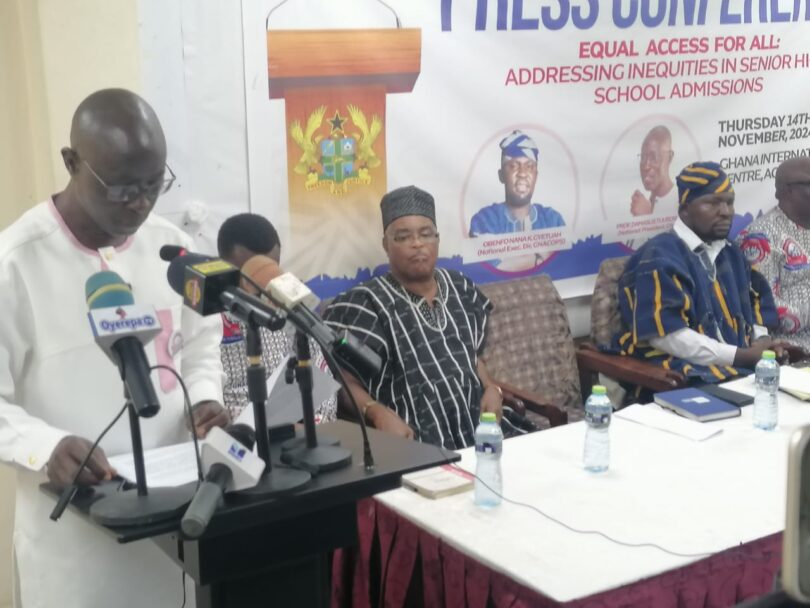Story By: Ishmael Barfi
In a bold move, the Ghana National Association of Private Schools (GNAPS) has publicly condemned the government’s 30% priority placement system for admissions into Category ‘A’ senior high schools.
At a press conference held at the International Press Centre, GNAPS, alongside the Ghana National Council of Private Schools (GNACOPS) and the Independent Schools and Teachers Council – Ghana (ISTeC-Gh), called for the abolition of the policy, labeling it discriminatory and unjust towards students from private schools.
Prof. Damasus Tuurosong, President of GNAPS, highlighted the system’s impact, noting that it reserves 30% of admission slots in top public schools for students from public junior high schools, forcing private school graduates to compete for the remaining 70%.

Private Schools Challenge Government’s 30% Priority Placement Policy
He argued that the policy undermines merit-based placement, limiting equal opportunities for private school students working equally hard to earn their places.
According to Prof. Tuurosong, the Ministry of Education’s rationale for the policy is based on the assumption that private schools are inherently better resourced, which he argued does not reflect the reality for many low-fee private schools in underserved communities.
These schools serve students from marginalized backgrounds, often without state support, yet their students are excluded from fair access to Category ‘A’ schools under the current system.
The press conference also highlighted issues arising from the recent BECE results, as WAEC withheld the results of several private school candidates over suspected malpractice, later clearing some without findings. This delay left many students without placements, adding to the frustration felt by private school stakeholders.
GNAPS, GNACOPS, and ISTeC-Gh have submitted a petition to the Commission on Human Rights and Administrative Justice (CHRAJ) to review the 30% placement policy.
The associations warned that they would continue to challenge any policy that denies fair and equal treatment to private school students, stressing that every Ghanaian child deserves equal access to quality education regardless of the school they attend.
Source: www.thenewindependentonline.com








